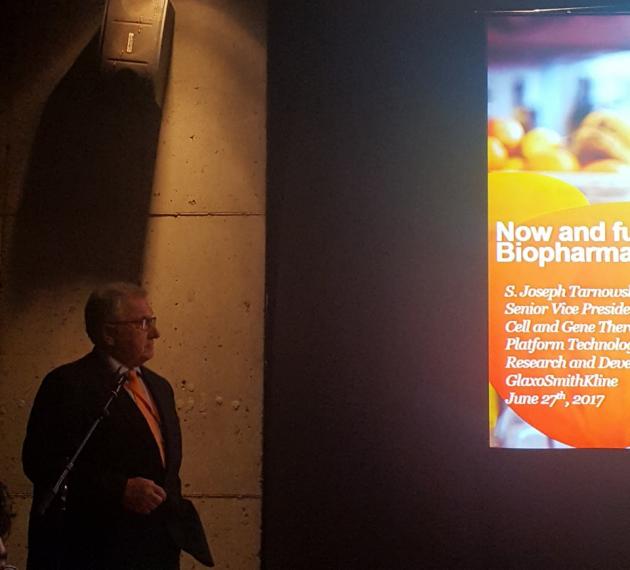GlaxoSmithKline (GSK) said Tuesday it would focus on developing cellular and gene therapies while strengthening price competitiveness through flexible drug pricing.
The multinational pharmaceutical company announced these and other business plans during a media event held in Hongdae area, western Seoul.
In addition to the development of new drugs, GSK will concentrate its efforts on producing treatments for respiratory and urinary diseases, rare ailments and skin troubles as well as HIV treatments and vaccines, said Hong Yoo-suk, CEO of GSK Korea.

“We plan to launch eight new drugs by 2018, including Relvar ellipta, Anoro ellipta, Triumeq and Fluarix tetra,” Hong said. "Korea is one of 20 designated R&D centers in the world, and we plan to invest more than 20 billion won ($17.5 million) annually."
GSK will strive to take the lead in maximizing the accessibility of medications with flexible pricing strategy, Hong added.
Joseph Tarnowski, senior vice president of chemistry, manufacturing, and controls (CMC) Biopharm R&D at GSK, unveiled the business plans of GSK’s global headquarters.
“Our pharmaceutical innovation is heading to cellular and gene therapy where we use cells as a medicine,” Tarnowski said. “We believe that cellular and gene therapy will be an important approach to finding solutions to serious diseases.”
GSK is experimenting with various approaches to cellular and gene therapy, and in particular it is developing a way to target tumor cells by activating T-cells in patients, Tarnowski added. He also explained the challenges that remain, such as immune-inflammation and disruptive innovation in oncology.
“But we need to pick the right targets, deliver outcomes rapidly, and reduce costs to manufacture that can improve yield, efficiency, and agility,” the GSK executive. “Our focus is the convergence of healthcare and technology.”
Asked about the side effects of CAR T-cell treatments that involve fever, tachycardia, and hypotension, Tarnowski noted that side effects are unpredictable, but through experience, they can learn the mechanism of the therapy.
“We will use more animal and testing models that can modulate the cells to remove the side effects,” he said.

